Director Sergio Leone & An Offer He Did Refuse
Sergio Leone’s 1966 “The Good, The Bad, and the Ugly” saw a success very few Western films have had. As far as Spaghetti Westerns go, this one is the biggest of all time. In case you’re unfamiliar with the term, a Spaghetti Western is essentially an American Western-style sub-genre of films made by Italian directors.
The film would launch Clint Eastwood into unimaginable stardom, and offer the world a new on-screen icon. “The Good, The Bad, and the Ugly” also altered the film world’s perception of the Western genre and is still an influential classic today.
Here’s a look back at the acclaimed film.
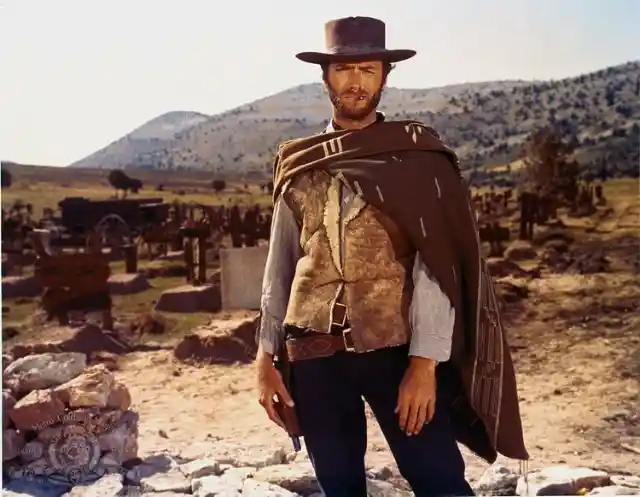
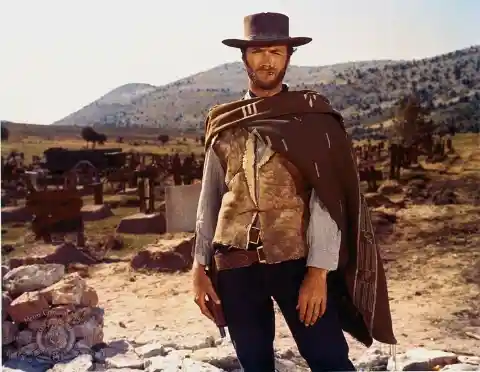
Leone passed away in 1989 at the age of 60 after suffering a heart attack. The Italian screenwriter, producer, and movie director was credited for creating the Spaghetti Western subgenre. Many regarded him as one of the most important directors in movie history. So, he left an everlasting mark on the film world.
The movie’s director, Sergio Leone, was offered the opportunity to direct “The Godfather” but turned down the offer. He was fully invested in another project, one that was 10 years in the making. That movie was “Once Upon a Time in America,” and it featured Robert De Niro and James Woods. The four-hour movie received a roaring standing ovation at Cannes.
Eastwood Wasn’t A Fan Of The Movie
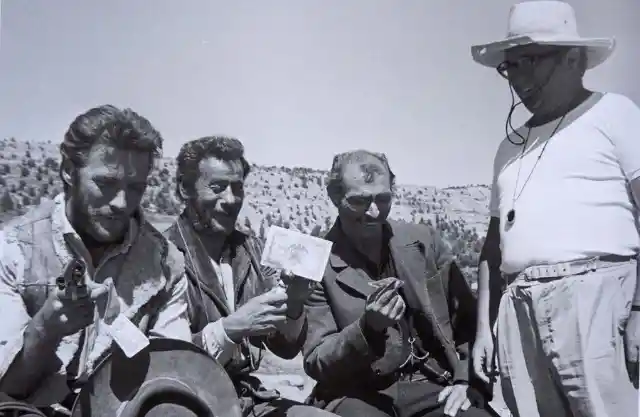
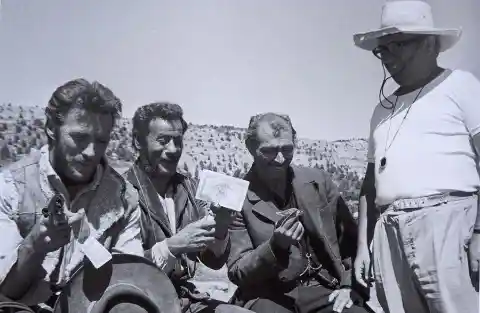
Clint Eastwood didn’t like the finished project. He wished the movie had been more “expansive” and instead felt “bloated.” He also didn’t think any of the characters were presented with too much depth, except for the character of Tuco. Even though he had a few issues with the final edit, he still took his role with high importance.
Humor and Improvisation & Ennio Morricone’s Perfect Score
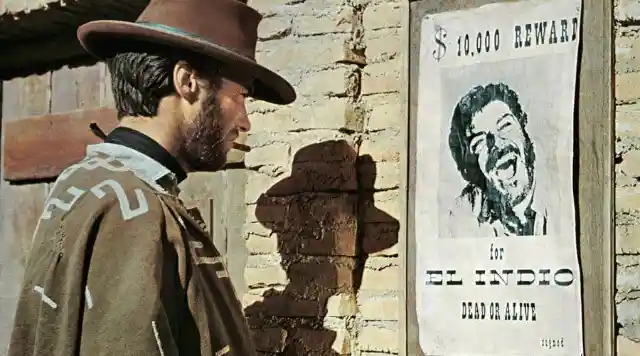
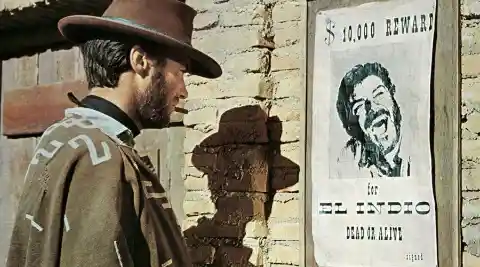
“When you have to shoot, shoot, don’t talk!” was an improvised line by Eli Wallach, who was a superb improviser. Wallach didn’t mean for the line to be taken as a joke, he felt it was an appropriate line for the scene. Regardless, the crew roared with laughter. He delivered the line with such great timing and is now one of the movie’s most famous lines.
The ever-famous theme music of “The Good, The Bad, and the Ugly” has remained one of the most memorable elements of the movie. You know, the one with the sound of a coyote howl? Even if you’ve never seen the movie, you have probably heard the score.
The soundtrack spent over a year on the charts and became his most successful project. Leone and Morricone would collaborate a total of six times over the course of their careers.
I Don’t Hit Women
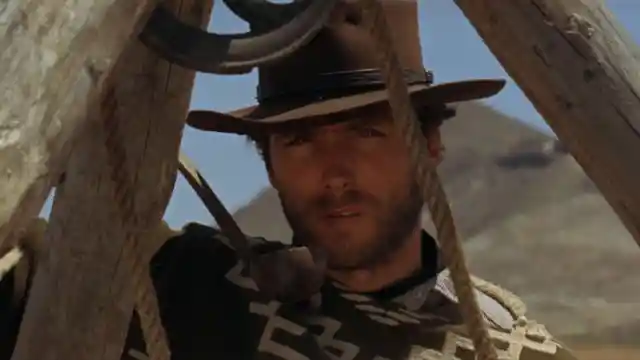
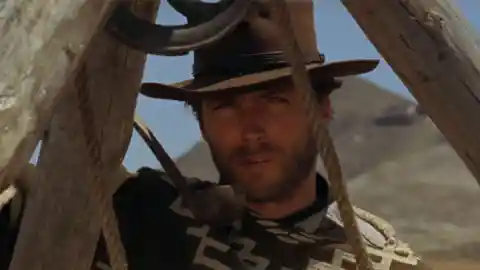
For an interrogation scene, actor Lee Van Cleef was asked to slap an actress. He couldn’t bring himself to do it, even after actress Rada Rassimov told him it was no problem.
He couldn’t do it and so they had to bring in a stunt double for the scene. He said, “There are very few principles I have in life. One of them is I don’t kick dogs, and the other one is I don’t slap women in movies.” The last part was oddly specific.
Wallach Was Almost Decapitated
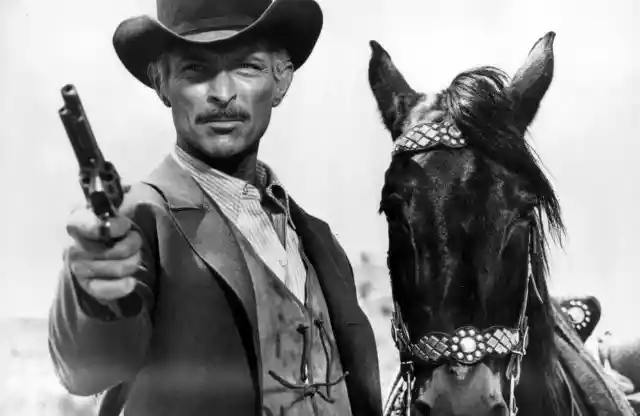
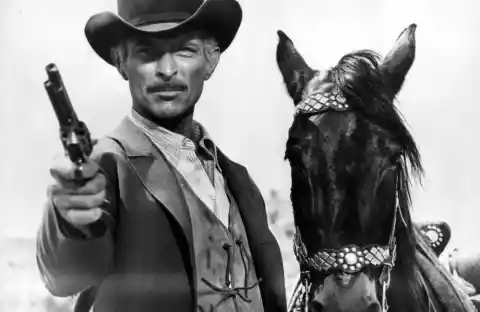
Eli Wallach agreed to forfeit a stunt double to make a scene more believable. Wallach’s character was to lie down on a train track as the train passed over him.
After the take, Wallach realized there was a metal step on one of the train cars that could have decapitated him. “If I had raised my head four or five inches, I’d be decapitated,” Wallach said.
A Pop Culture Phenomenon

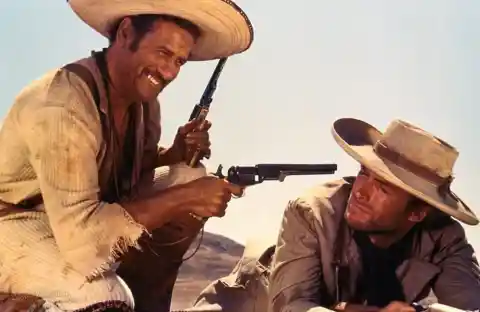
The title of the movie became a part of our English vocabulary, such was its impact. But the movie also became a popular reference in cinema. Quentin Tarantino pays homage to the movie’s standoff scene in his own movie “Reservoir Dogs.”
Tarantino regards “The Good, the Bad, and the Ugly” as “the best-directed film of all time” and the biggest cinematic achievement in history.
“The Good, the Bad, and the Ugly” redefined cinema. It became a standard to reach and a movie that inspired so many filmmakers in years to come. From its iconic theme music to near-death experiences, this movie is regarded as one of the biggest successes in the Western genre.